
At St Peter’s we believe that the social, emotional mental health (SEMH) of children and adults is of the utmost importance and central to our vision of enabling everyone to Love Learn Shine.
SHINE
We support children to grow and develop socially, emotionally, physically and spiritually, helping them to shine and share their light enabling themselves and others to flourish.
We want everyone involved in our school family to be emotionally and mentally healthy. This means supporting them to becoming resilient with the ability to recognise how to proactively care for their emotional health, as they would do for their physical health.
It also means recognising that mental health changes just as physical health does sometimes over time and on other occasions in an instant. Support for mental health, just as for physical, comes in many different forms from many different sources all of which have value and can play a role.
A whole school holistic ethos and culture where good mental health is valued, prioritised and supported for all adults and children and young people is essential. Schools should prioritise an absolute commitment and drive to develop a physically, socially and emotionally safe and secure environment for both adults and children/young people.
North Yorkshire Ladder of Intervention
SEMH is identified as one of the four categories of need for children. Early identification of children who may be vulnerable to SEMH difficulties is embedded in our Provision Map for Social Emotional and Behaviour Needs which can be accessed from the Inclusion (SEND) page of this website.
The majority of staff and some governors have completed Level 1 Compass Buzz training- Prevention and Promotion. This helps staff understand the principles and benefits of effective support for social and mental wellbeing and how this transfers into whole school practise. While not clinicians or counsellors, training ensures staff have an awareness of common issues, challenge stereotypes and can actively promote good mental health.
Some staff have received more in-depth training including Level 2 Training – Early Identification of Need and Level 3 Training – Early Help and Intervention. The Head teacher has completed Level 4 training and planning workshops for school leaders.
The SENDCo has received training on Adverse Childhood Experiences, Attachment and Trauma and Developing Relationships through Trauma informed Practise which have been shared with staff at dedicated SEND staff meetings and INSET days. The SENDCo has also received Designated Teacher for LAC and Supporting pupil & student wellbeing after lockdown and Staff Wellbeing in Schools training.
Senior leaders have training in Supporting Staff well-being, Mental well-being in a Child or Young Person and Designated Safeguarding Leadership.
We are fortunate to have trained teaching assistants who are able to provide 1:1 pastoral support for anxiety and emotions as well as group activities to support social and emotional difficulties with children. We have links with the Communication and Interaction team who have further supported work on emotions through Zones of Regulation, supported by teaching assistants in class.
Support and interventions accessible include but are not limited to:
As a school we are committed to ensuring we maintain strong and well-trained practitioners within the staff team who can address specific SEMH needs and support other members of staff.
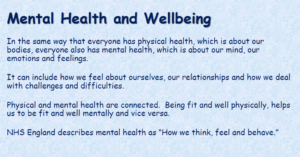
Mental Health and Wellbeing – Parent Guide

There are lots of ways to feel calmer. It’s about finding what works for you. Try some of our breathing exercises, activities, games and videos to help let go of stress.
https://www.childline.org.uk/toolbox/calm-zone/

The UK’s leading charity fighting for children and young people’s mental health. Find out more about us, our mission and how we work.

Compass BUZZ is an exciting, new, innovative and free project that aims to improve the mental health and wellbeing of children and young people aged 5-18 (25 with SEND) in schools across North Yorkshire.
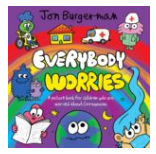
In this bright and friendly picture book, children learn that it’s okay to worry about Coronavirus.
Fun rhyming couplets keep the tone gentle and supportive, and you will find plenty of ideas for dealing with Coronavirus in a positive way.
Everybody Worries offers your child the reassuring message that this crisis will pass, we are there for them, and we will get through this together.
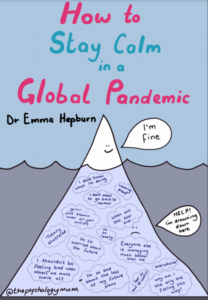
A further Free E-Book for families titled How to Stay Calm in a Global Pandemic.

We are delighted to announce that a new website for children, young people, parents/carers and professionals has been launched!
The Go-To is a portal or ‘single point of information’ for the wide range of mental health support services offered by different agencies in North Yorkshire.
This new website signposts young people to the most appropriate support and has lots of useful tips and information to help young people cope with stress or anxiety.
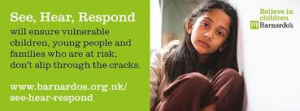
See, Hear, Respond is a service provided across England by Barnardo’s and other national and local community-based organisations in response to the coronavirus (COVID-19) outbreak.
The programme has been created to help children and young people in England who are experiencing adversity during this period by providing support to those who are not being seen by other key agencies.
Working with its partners, Barnardo’s aims to ensure other support and networks are in place using:
See Hear Respond accept referrals from any source either through the
Freephone number 0800 0087005 and via the online referral hub

Developing Resilience (under 12’s)
This aims to help children under 12 to learn more about what resilience is and how they can be more resilient.
To access these courses and many more, head to www.recoverycollegeonline.co.uk and use the log in button at the top of the page or head straight to Moodle, the e-learning site, via https://lms.recoverycollegeonline.co.uk/. If you are unsure of how to navigate the site, you can take the tutorial short course which talks you through Moodle and how to use it. Or you can send an email to tewv.vrc@nhs.net who will be able to help.
Families Under Pressure https://maudsleycharity.org/familiesunderpressure/ illustrates simple tips and techniques to support families in this challenging time, all narrated by voices you may recognise.
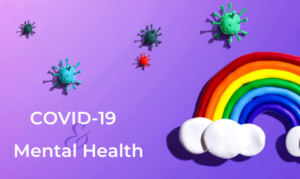
Children and adults will experience a variety of feelings in response to the coronavirus pandemic. These may include but won’t be limited to anxiety, stress, fear and low mood. It is important we all help children understand that these feelings are a normal response to an abnormal situation. Some children may need support to re-adjust to school; others may have enjoyed being at home and be reluctant to return; a few may be showing signs of more severe anxiety. Others will not be experiencing any challenges and will be keen and ready to return to school.
It is likely that the rhythm, routine and structure of school life will be of comfort and support to many if not all children. Returning to school will give children chance to interact with their friends, peers and school adults, which will benefit their emotional wellbeing. We will be ready to support all children, families and our staff team with their social emotional and mental health.
Possible negative impacts of the coronavirus pandemic on the mental well-being of children and young people include but are not limited to:
As they return to school, children may struggle with:
Here are some simple strategies to try:

Last year the government appointed Dr Alex George as a youth mental health ambassador. We are pleased to share his recently published Top Tips for good mental health and wellbeing.
